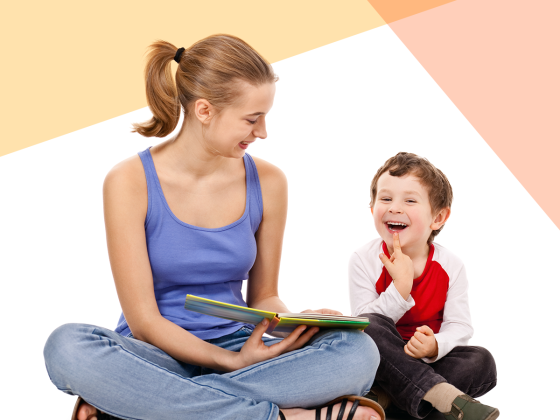
Everyday Word Play
Tips to turn everyday activities into language-learning moments.
Language opens the door to learning. By helping children learn new words now, you’re building the vocabulary they’ll need to learn in school and form new relationships. The best way to learn new words is to use them! Use these tips to turn everyday activities into language-learning moments:
During Story Time
- Use feeling words to talk about the story. Ask: “Why do you think the character feels that way?”
- When a character has a problem, ask your child what he would do in that situation. Come up with problem-solving strategies, such as asking for help or taking turns.
At the Supermarket
- Play a game of I Spy to introduce food words. Use describing words, such as above, below, and in between.
- Being in a classroom with other children requires patience! Practice patience while in line by searching for things around you that begin with a certain letter.
On the Go
- Use words to practice remembering and following directions. You might say, “Walk rapidly to the corner, turn left, and pause.”
- To help children recognize letters and the sounds they make, try finding the first letter of your child’s name on street signs. Then take turns pointing out other letters!
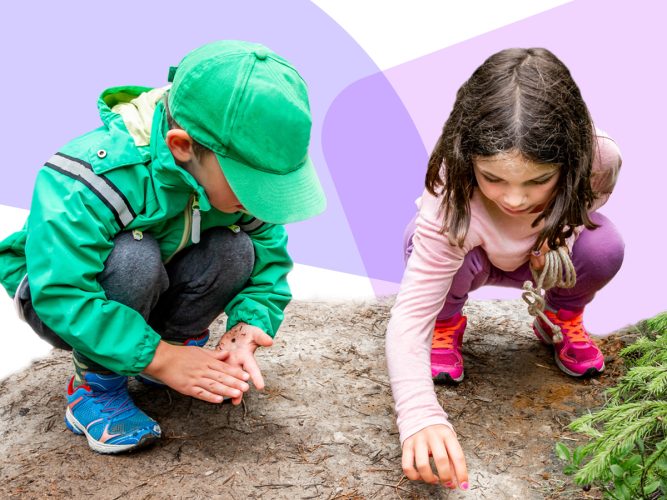
A Walk Around the Block
An article exploring opportunities for outdoor learning.

Focus & Observe
An article on building science skills with a fun and simple prop.
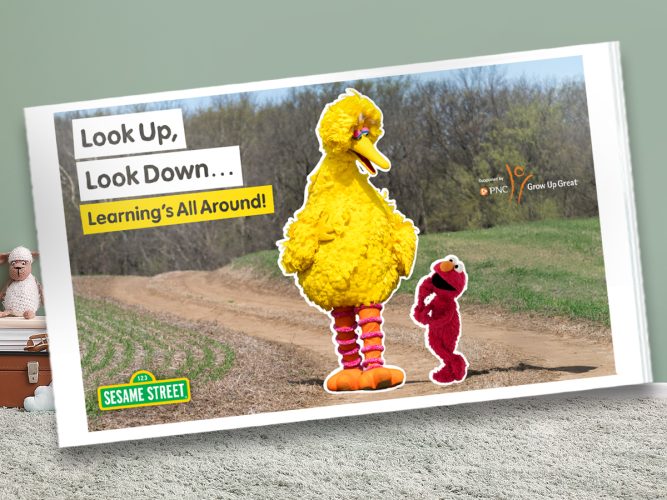
Look Up, Look Down
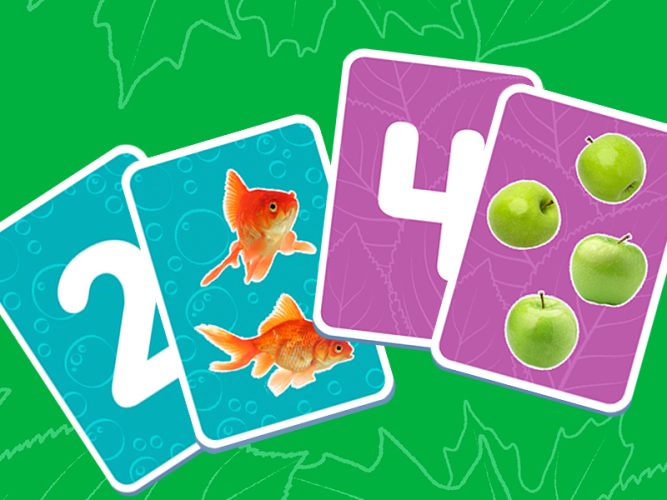
Counting Outdoors: Memory Match
A concentration-style counting game featuring things children see in the natural world.
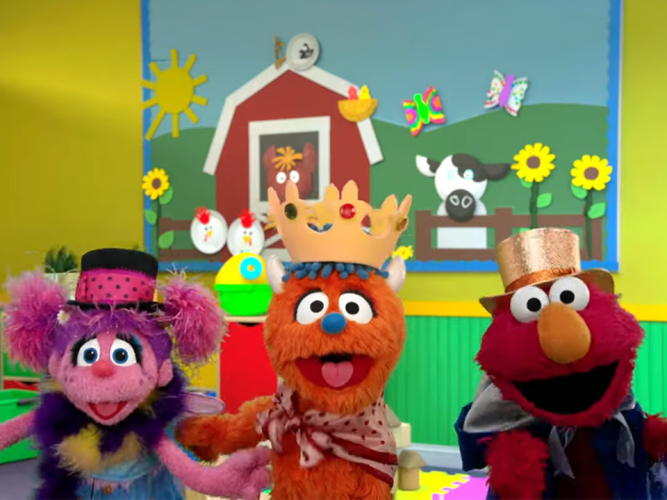
Learning Party Lyrics
Every day can be a celebration of learning. Keep the music going!
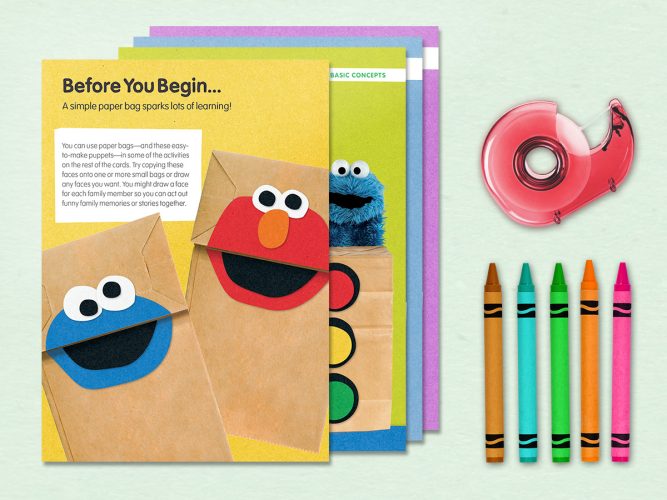
Learn & Grow: Inside, Outside, on the Go
Learning can happen anytime, anywhere—inside, outside, or on the go!
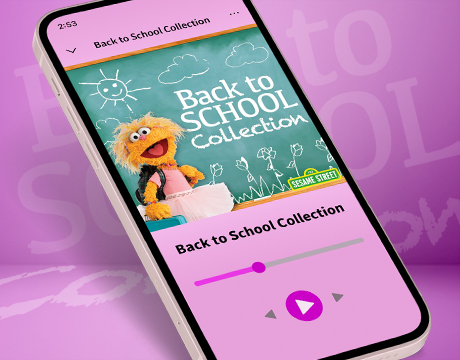
Sesame Street Back to School Music Playlist
This curated playlist is perfect for both little learners and educators alike! A mix of energetic hits and mellow tunes sets the mood for getting into the learning groove.
